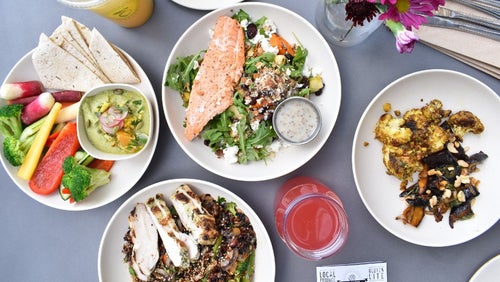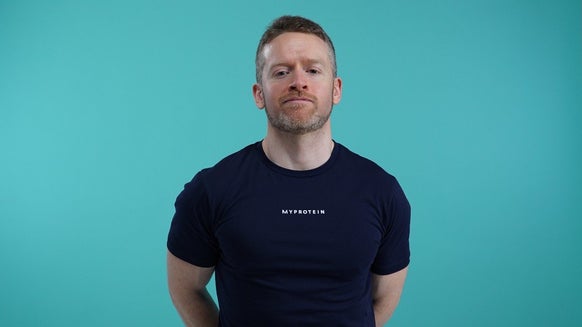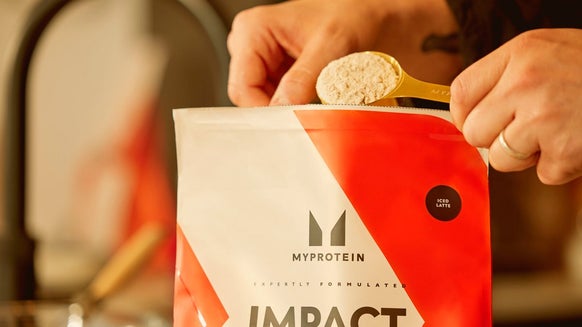8 Small Ways To De-Stress

The last year has been pretty insane, so it's not surprising that so many of us have felt more stressed than usual. In fact, a study run by the Stress Management Society, which surveyed 2000 adults in the UK, found that 65% felt more stressed than usual and 53% felt more anxious since the pandemic began1. So, it's clear that feelings of stress and anxiety aren't unusual, especially at the moment.
This month is Stress Awareness Month, and so we thought we'd give you 8 small things you can do throughout your day to help you to de-stress.

1. Yoga
We love to get in a bit of Zen wherever we can with a yoga session.
From as little as ten minutes, to as long as an hour, yoga can fit around your day, no matter how stressful. Just a small session can leave you with a clearer mind, dissolving away whatever stresses you’ve got that day.

Nutritionist Reviews The Best & Worst Diets Of 2020
An expert nutritionist goes through some of 2020s most talked about diet.
2. Take a Technology-Free Walk
As much as it's a great feeling to listen to your favourite music or podcast on a long walk after a stressful day, sometimes unplugging and listening to everything around you can give you the clear head that a stressed mind needs.
Be mindful of the sounds around you and take the time to sort through your thoughts, with no distractions. We know it might be tough, but leaving your phone at home can feel like lifting a weight off; getting rid of the stresses of modern life, even just for half an hour.
3. Switch Off Social Media
If you loved taking a phone-free walk as much as we thought you would, taking the step to switch off your social media for an hour or so every day could relieve you of extra stress that you don’t need.
4. Read
Do you cringe when you see your screen-time notification pop up every week just to let you know that it increased by 115%? Yeah...we get that.
Take a step away from the screens that cause our brains to be on high alert and take some time to read.
5. Stretch
Sometimes you’ve just got to stretch it out to release all of that tension.
There are so many stretching routines out there to try, and starting or ending your day with a good stretch is a brilliant way to relieve stress.
Its time set aside just for you, without any distractions, the perfect way to clear a busy mind.
Try out our yoga style stretch routine to start unwinding.

Top 5 Workouts For Rainy Days
With gyms closed and the rain pouring, we don't want you to miss out on a workout.
6. Light some Candles
Any candle lover knows how the mood is elevated once you light a candle. Fill the room with calming smells and relaxing lighting. Get a cup of tea, and maybe a book and chill out. Also recommended to accompany a long bath for ultimate de-stressing powers.
7. Cook
Take on board tip six, and light a candle, pour a glass of wine, put some music on and start cooking. This can be a top strategy for de-stressing for many people, and there’s nothing better than a home cooked meal to brighten up a stressful day. And cooking it can be just as enjoyable as eating it.
Try a few of our warming winter meals for ultimate comfort and stress-relief.
8. Write it Down
A problem shared is a problem halved. Even if it’s just written down for no one else to read.
Take Home Message
Pick out a few of these tips the next time you have a stressful day (or week, or month!) and we promise you might feel that little bit lighter. Whether you love to cook to de-stress, or you just need a long bath, its important to find your perfect strategy to unwind, especially in 2020.
And don't forget to always seek professional help for any anxiety, you can see some helpful resources for that here.
Want some more tips from us?
READ THESE NEXT:

- “A Study on the Impact of Stress and Mental Health as a Result of the Pandemic”, Stress Management Society, International Wellbeing Insights, found at: https://www.stress.org.uk/wp-content/uploads/2021/03/Infographic-on-2021-Study.pdf







